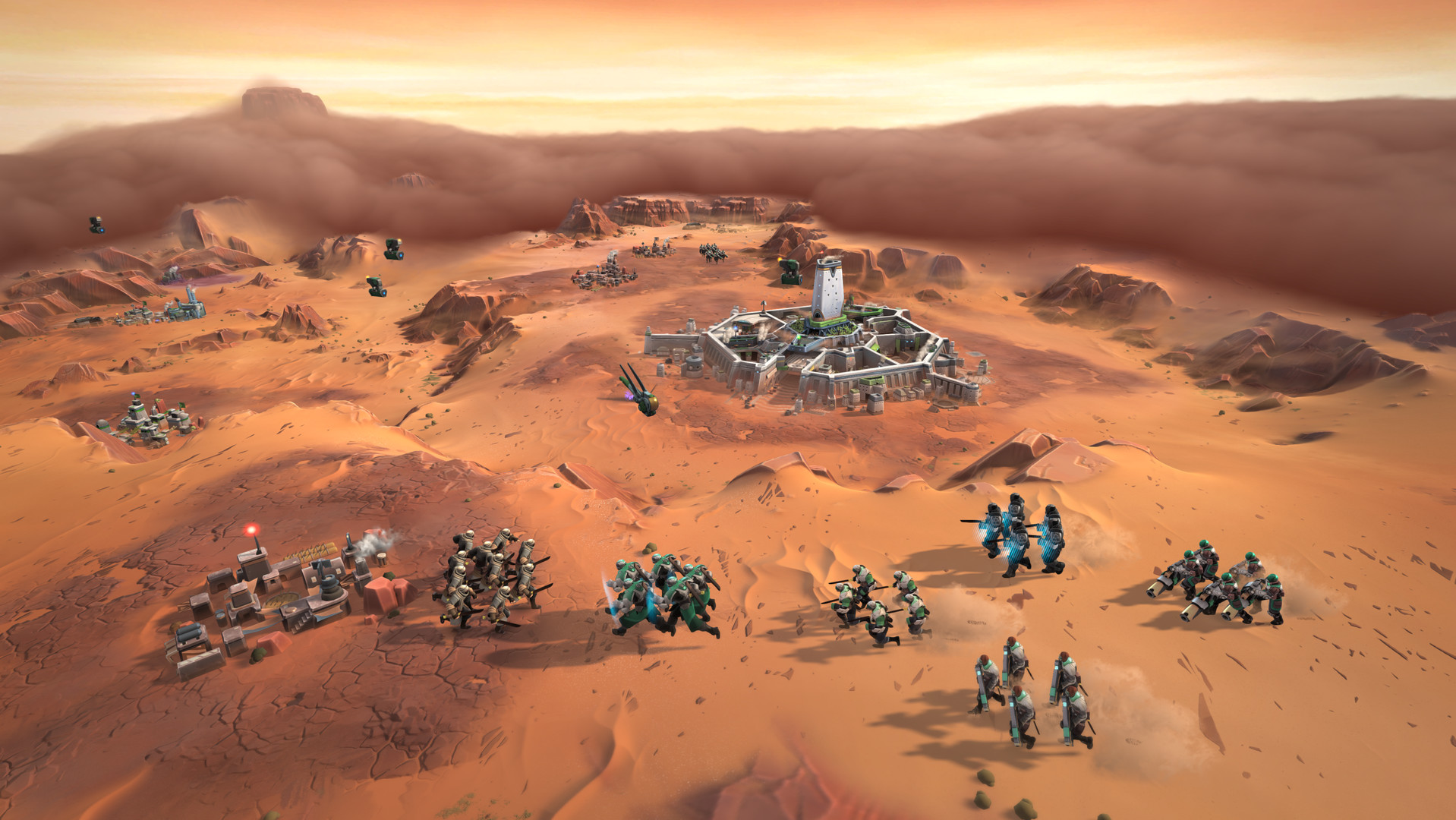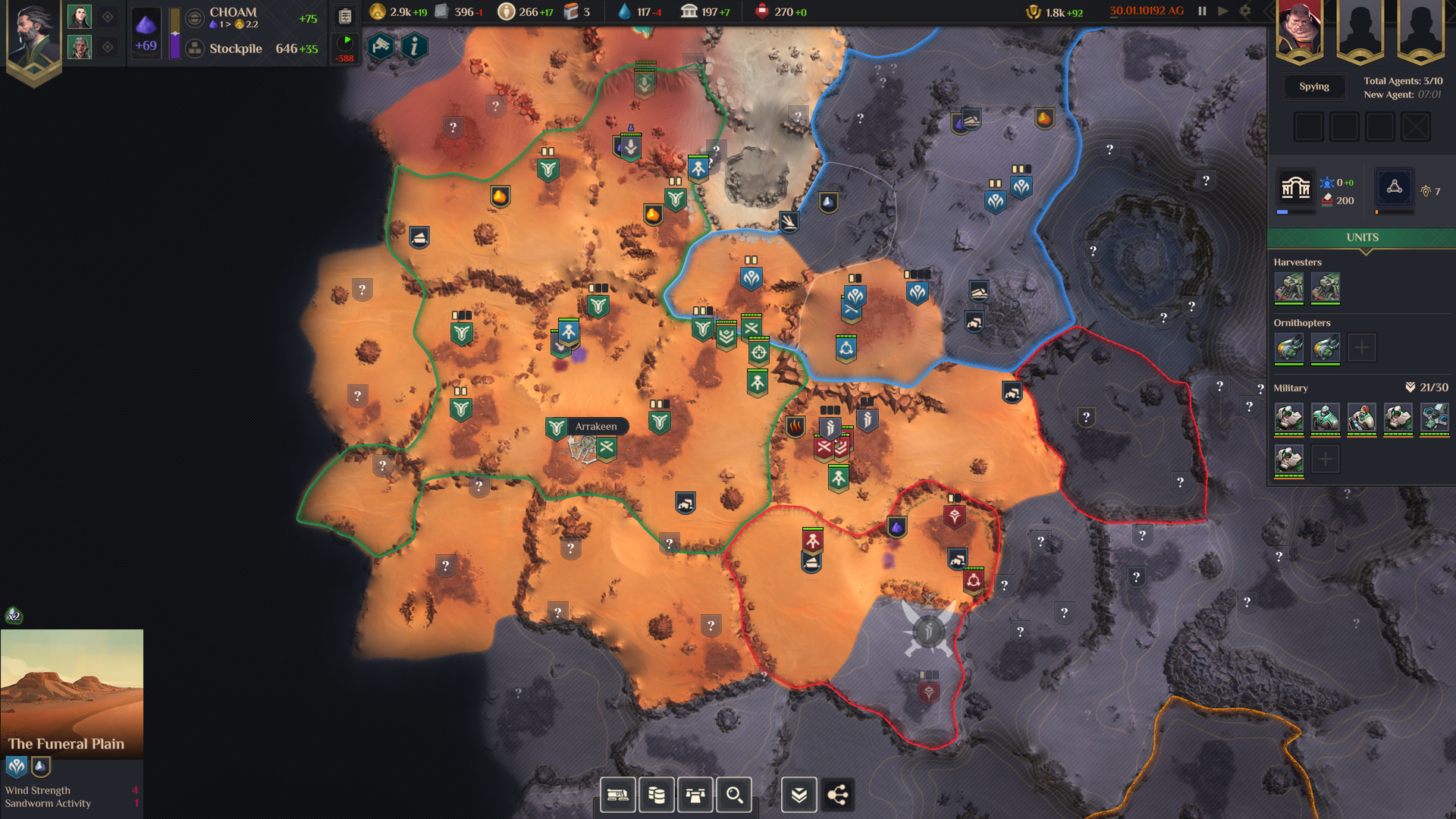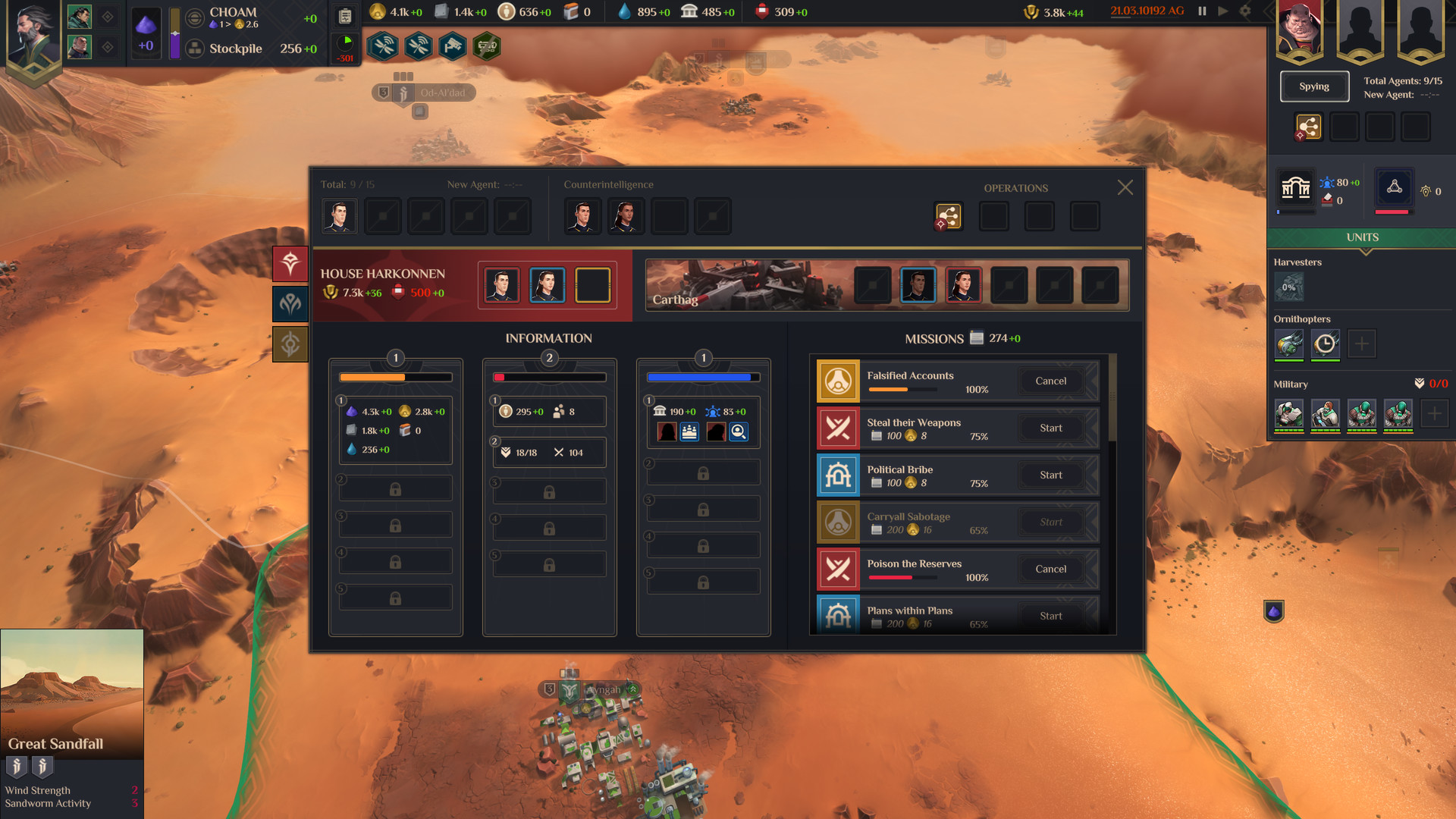
Dune: Spice Wars Preview
Developer Shiro Games knows a thing or two about creating strategy games, with fantastic titles such as Northgard already under its belt. With its latest title, Dune: Spice Wars, having just been released into Early Access, what can we expect when one of science fiction’s greatest franchises meets 4X strategy? I’ve had the opportunity to play the game before its public release, so here’s a brief overview of my roughly 10 hours spent with Dune: Spice Wars.

Upon starting a new game, you have the option of picking from four different factions: Atreides, Harkonnen, Fremen, and Smugglers. Each one provides different bonuses and passive abilities that will be put to good use depending on the path you want to take through a campaign. With this being a 4X (explore, expand, exploit, exterminate) title, players are able to choose how they want to develop their chosen faction; do you spy on others and sabotage them from within? Perhaps you prefer a more diplomatic approach and set up regular trades with opposing leaders? Or maybe, if you’re anything like me, you want to amass a grand army of soldiers to crush anyone that dares stand in your way? Thankfully, you’re never limited to just one option in Dune: Spice Wars, and throughout each of my campaigns I never stuck to a particular method of play, and it became an enjoyable balance of keeping some factions on my side, whilst sabotaging others before storming their territories to claim their precious spice fields.
If you’re not familiar with the Dune franchise, spice is essentially a substance that can extend a person's life and is the most precious resource in the universe. So naturally, everyone wants to hoard as much of it as they can, but it isn’t the only thing on planet Arrakis that you’ll need to forage in order to grow your faction. You’ll need to be constantly watching things such as water consumption and influence with the Landsraad — a sort of all-powerful council that oversees all factions — thankfully all of which can be seen on the heads-up display at any time. My first thought when looking over the HUD was “What on Earth does any of this mean?”, although that’s usually my train of thought whenever I play a strategy game. Hover over anything with your cursor and a small window will appear with a brief paragraph of what said icon is, and what it does.
My first game lasted roughly five hours, and it was difficult to tear myself away from playing once I’d gotten to grips with all the mechanics, which thankfully aren’t that complex if you’ve played similar titles before. There is a tutorial, but it isn’t a dedicated section of the game and instead has text boxes pop up when you select something for the first time, or when an event happens that you’ve not yet witnessed. Although I liked learning as I played, it should be noted that it isn’t an in-depth tutorial, so those who aren’t familiar with the genre may want to lower the difficulty and start their first few games on the smaller map size.

It didn’t take long before Dune: Spice Wars just seemed to click with me, and I was smoothly transitioning between fighting off bandits invading one of my territories, upgrading my main city, making sure my spies were focused on certain targets, and so much more.
I focused on trying to control as much territory as possible early on, particularly on sections of the map that had spice fields to increase my stock (a portion of your stockpile is taken as tax every in-game month by the Imperium). I attempted to maintain a steady balance of all resources, keeping everything in the positive so I wasn’t siphoning something like plascrete (used in almost every building construction but can be hard to come across). This is where building comes into play. Each town can be upgraded to grant you things such as additional income and research points. If you have a town bordering an enemy's territory though, I found it more worthwhile to build up the military defences such as turrets, local militia, and airfields— used to quickly transport your army across the map — to fend off any would-be attackers.
There were several opportunities to satiate my urge to mess with the other factions, such as taking over their spice fields, meaning they couldn’t pay the spice tax to the Imperium; that doesn’t make them look good! Spies and sabotage play a vital role in giving you the edge over the opposition, but it can make trading with them later on much more difficult if they foil your plans. I found trading to be essential once I’d expanded my empire; each new town under your control requires more water, energy, and other resources, and whilst waiting for buildings to be constructed that will help with these, trading can save you from uprisings or surprise attacks.

For an Early Access title, I was impressed by the lack of any bugs or slowdown during my time. The only issue I found was certain raiding parties would T-pose when spawning, and calling that an “issue” is a bit of a stretch. Dune: Spice Wars feels very polished, the developer has clearly spent a lot of time perfecting the main gameplay systems, so whilst I was initially disappointed at only having one game mode to play, it was such an enjoyable experience that the lack of a campaign or multiplayer (although Shiro Games has confirmed multiplayer will be available very soon after the launch date) didn’t bother me in the slightest.
It doesn’t look half bad either, with clean menu designs, and stylised character designs that reminded me of Sid Meier’s Civilization VI. Overall I was genuinely impressed by Dune: Spice Wars, particularly as it has just entered Early Access. A campaign mode, some more playable factions, or even a detailed tutorial are my three wishes for additions to this title. What can we expect to see in the future of this game? Only time will tell!








COMMENTS